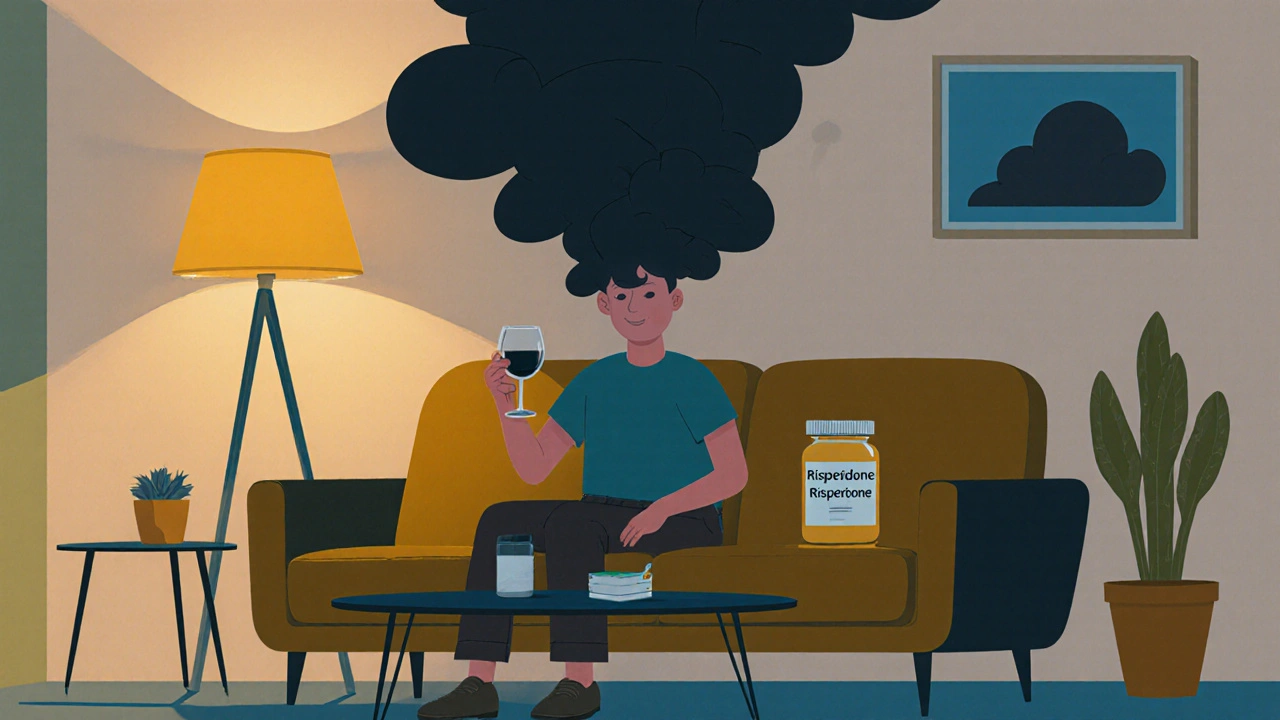Mixing Alcohol with Medication: Risks, Reactions, and What You Need to Know
When you mix alcohol with medication, the combination can alter how your body processes drugs, increase side effects, or cause life-threatening reactions. Also known as alcohol-drug interactions, this isn’t just a warning on a label—it’s a real risk that affects millions. Many people don’t realize that even a single drink can turn a safe pill into a hazard. It’s not just about heavy drinking. A glass of wine with your painkiller, a beer with your antibiotic, or a nightcap with your sleep aid—each carries hidden danger.
Alcohol and antibiotics, like metronidazole or tinidazole, can trigger flushing, rapid heartbeat, nausea, and vomiting. Alcohol and antidepressants, including SSRIs like sertraline or fluoxetine, may worsen drowsiness, dizziness, and depression symptoms. And when you mix alcohol with pain relievers, especially acetaminophen or NSAIDs like ibuprofen, you’re putting extra strain on your liver and stomach—raising the chance of internal bleeding or liver failure.
It’s not just prescription drugs. Over-the-counter cold meds, sleep aids, and even herbal supplements like valerian or kava can turn dangerous with alcohol. The effects aren’t always obvious. You might feel more tired than usual, get dizzy standing up, or notice your heart racing after just one drink. These aren’t normal side effects—they’re red flags. And if you’re older, taking multiple meds, or have liver issues, the risk goes up fast.
Doctors don’t always bring this up. You might assume it’s fine because you’ve had a drink before with your pill. But the body changes. Your metabolism slows. Your liver gets tired. A dose that was safe last year might be risky now. The truth is, if your medication label says "avoid alcohol," it’s not a suggestion—it’s a safety rule. And if it doesn’t say anything? Ask. Don’t guess.
The posts below dive into real cases and studies: how mixing alcohol with common drugs like gabapentin, warfarin, or sedatives leads to emergencies, why some people think they’re fine until it’s too late, and what to do if you’ve already combined them. You’ll find clear, no-fluff advice on spotting warning signs, when to call a doctor, and how to talk to your pharmacist without sounding paranoid. This isn’t about fear—it’s about knowing what’s really going on inside your body when you drink and take meds together.

Risperidone and Alcohol: What Happens When You Mix Them
Mixing risperidone and alcohol can cause dangerous side effects like extreme drowsiness, low blood pressure, and impaired coordination. Learn why even one drink can be risky and what safer alternatives exist.
Read More